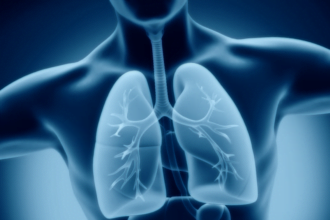For the average person looking for information about vaping, a quick Google search turns up a lot of conflicting information. With the top results relating to how vaping is a gateway to smoking cigarettes in teens, the unknown long-term health problems associated with e-cigarettes, and the potential for explosions, it is easy to get the impression that vaping is quite dangerous. Don’t believe all the scaremongering and misinformation. While there is still some uncertainty regarding the long-term effects of vaping, one thing is clear: Vaping is significantly healthier than smoking regular tobacco cigarettes. It has fewer health risks and, while no one claims that it is completely safe, it is clearly a much better choice. Let’s take a look at just a few of the reasons why vaping is healthier than cigarette smoking. Public Health England’s Landmark Study Reveals Vaping Is 95% Safer than Smoking In a landmark study conducted by Public Health England, researchers found that vaping poses a fraction of the risks of smoking cigarettes. Overall, the research indicates that e-cigarettes are approximately 95% less harmful than tobacco cigarettes. They are also much safer for bystanders. Unfortunately, nearly half of the British population is unaware of just how much less harmful vaping is. Contrary to popular belief, the study also found that there is no evidence to suggest that e-cigarettes are acting as a gateway to smoking for children, teens, or non-smokers. Cancer Research UK Supports Vaping in the Fight Against Cancer Everyone is familiar with the role tobacco cigarettes play in causing cancer. That is, of course, one of the main reasons that smoking is discouraged. For those who already smoke, though, quitting is extremely difficult. Cigarettes contain nicotine, which is highly addictive. When people make the switch from smoking to vaping, however, they can feed their nicotine addiction without the tobacco. While nicotine is addictive, it does not cause cancer. The tobacco and additives found in regular cigarettes are why smoking causes cancer. In a study funded by Cancer Research UK, researchers found that individuals who used e-cigarettes instead of regular tobacco cigarettes for at least six months had significantly lower levels of cancer-causing and toxic substances in their bodies than those who continued smoking cigarettes. This indicates that when people vape instead of smoke, they are exposed to fewer toxins and chemicals. By reducing exposure to such harmful ingredients, it is possible to reduce the development of certain types of cancer. Based on these results, Cancer Research UK supports the use of e-cigarettes as harm reduction tools. In other words, they support vaping as a means to help people quit smoking cigarettes to reduce their risk of cancer and other negative consequences. Since vaping still enables users to consume nicotine, this method of harm reduction is likely to have much greater success than a focus on complete abstinence from nicotine. E-Cigarettes Contain Fewer Chemicals than Tobacco Cigarettes Whether you are smoking or vaping, you are inhaling certain chemicals into your lungs. There is no denying that. However, vaping exposes you to significantly fewer chemicals. You can also make your own e-juice in e-cigarettes by getting help from e liquid mixing ratios. When you smoke a regular cigarette, the process involves the combustion of tobacco. Tobacco contains thousands of chemicals, and more than 20 of them are known to cause cancer. A few of the carcinogenic chemicals found in tobacco cigarettes are hydrogen cyanide, lead, formaldehyde, arsenic, benzene, ammonia, nitrosamines, carbon monoxide, and polycyclic aromatic hydrocarbons. When you burn tobacco, it sets off a chain of chemical reactions and creates smoke that is filled with all of those carcinogens. Vaping does not involve combustion. While there are still chemicals found in vapour, under normal vaping circumstances, none of the carcinogens you find in cigarettes are present. Vapour contains things like propylene glycol and vegetable glycerine. Many of these chemicals are food grade and, therefore, safe to consume. Research is still ongoing to determine the safety of these ingredients when inhaled, but the reduced number of chemicals found in e-cigarettes still makes them safer than regular tobacco cigarettes. Second-Hand Vapour Does Not Carry the Same Risks as Second-Hand Smoke In addition to being healthier for you, vaping is healthier for the people around you. While studies are still ongoing, those that have been conducted thus far have found that second-hand vapour poses very little risk, if any, to bystanders. In fact, one major study found that, based on compounds analysed, e-cigarette emissions pose no apparent risk to human health. The Risk of Injuries Is Small Since the release of cigarettes, there have been stories of vape battery explosions. These types of accidents are, however, more uncommon than the media and anti-vaping activists would like to have you believe. Since the launch of e-cigarettes in 2007, there have been just 243 reported explosions involving the devices. Of them, most occurred as the direct result of overcharging the device or using sub-par batteries. If you vape, it is important to exercise care when charging, using, and transporting your device. Always use the charger that came with your e-cigarette or an authorised replacement. Never overcharge your device, and be careful when carrying it with you to keep it from contacting metal objects like change or other batteries. With a bit of care and common sense, vaping is relatively safe. Vaping vs. Smoking: The Bottom Line When you are researching the potential health and safety concerns surrounding vaping, there is a lot of conflicting information. The bottom line, though, is that vaping is significantly safer than smoking. It eliminates exposure to tobacco and the harmful chemicals present in the smoke that occurs as the result of tobacco leaf combustion. Unlike second-hand smoke, second-hand vapour poses no risk to bystanders and, when used responsibly, there is very little chance of having a battery explode. While they are not completely safe, e-cigarettes are certainly the healthier option.







